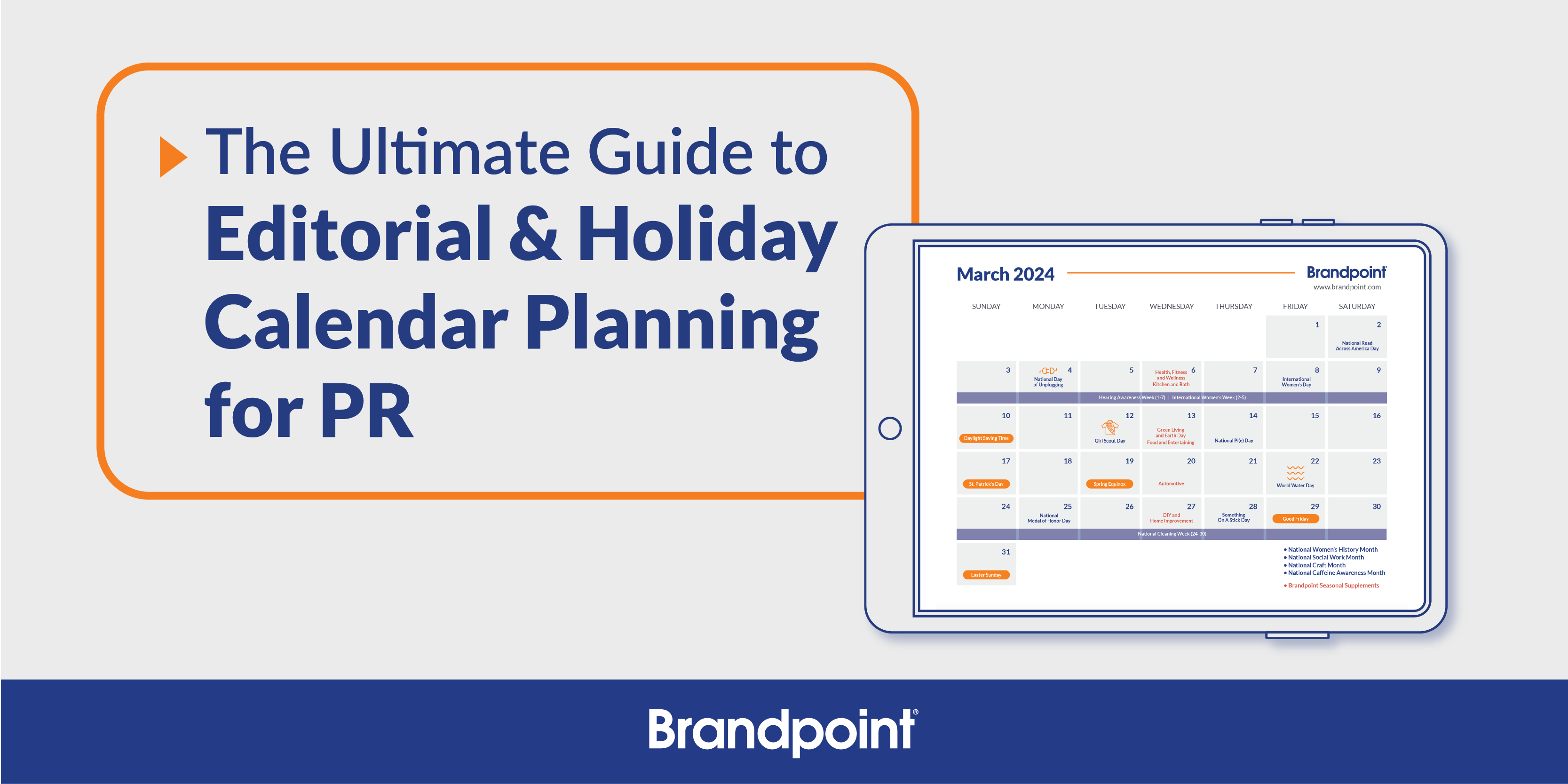Ever since 2020, the world has seemed a lot more unpredictable.
The pandemic’s effect on how we live and work still lingers. The United States’ political climate continues to become more divided and tense. Many industries have seen massive lay-offs (most notably in the news, government and tech sectors.) Pair this with the continued rising prices for tons of consumer goods, continued talk of an impending recession and ongoing global crises in both Ukraine and Palestine, and it’s safe to say we’re living in “uncertain economic times.”
In 2025, the pressure is mounting again, this time driven by economic instability tied to escalating tariffs, trade disruptions and political unpredictability both at home and abroad.
Industries across the board are feeling the strain. Tariff hikes are pushing up costs on essential goods and materials, while uncertainty around government decisions is stalling strategic planning. Even companies that weathered the last few years relatively unscathed are now reevaluating their operations, budgets and workforce.
And although a major recession hasn’t officially landed, its shadow looms large. Markets are reacting to headlines and decision-makers are growing cautious. Advertising budgets, media spending, and brand investments are often the first to get frozen.
[Read more: 3 Takeaways for the Next 3 Years for PR Industry!]
When the country seems like it’s in an emergency state when it comes to the economy and it’s hard to predict just what will happen next, it’s only natural for decision-makers at companies to want to pre-emptively cut budgets and put a pause on what they’re spending money on to protect their bottom line.
But, for those in public relations, this is the worst thing they can do.
Why public relations teams should keep their feet on the gas pedal
In the world of PR agencies, many professionals in the industry have to act as both a public relations practitioner and a liaison between their brand contacts and the decision-makers at those companies. Helping these brands understand why budgets should not pause during a time like this is just one part of the job that doesn’t necessarily have to do with sponsored content strategy.
We’ve noticed a massive shift in budget approval timelines, and a majority of the time this is happening because brands are afraid to commit. The PR teams understand the importance, but the higher-ups who approve spend are rightfully hesitant to spend more money in times like these.
[Read More: On Working in Communications During a Global Crisis]
To help equip your brand’s partners with talking points on why continuing to reach their audiences is more important than ever right now, here are a few reasons why investing in public relations is non-negotiable.
You need to provide stability and solid, reassuring messaging to your audiences
Think of how you personally feel when you read about mass layoffs, headlines about tariffs and potential trade wars, or even when you see eggs priced at over $6 a dozen at your grocery store (if you’re lucky). This is a pivotal moment for brands to speak directly to their audiences and reassure them, explaining reasonings behind big changes.
If you disappear, your audience will, too
Online audiences have become savvy and more attuned to digital behaviors in recent years, thanks to the pandemic forcing everyone to do more business online. If your PR slows down or stops, that will send a signal to consumers that you aren’t around anymore.
This conclusion is more than just anecdotal. According to an article by Sprout Social,
“A Q1 ‘23 Sprout pulse survey found that 77% of consumers are more likely to spend more with brands they feel connected to, up from 57% in 2018.”
Additionally, there will be companies who do take advantage of this time to reach their audiences, so by removing yourself from the conversation, there will always be another brand who is more than happy to step up in your place. Which leads us to:
Less competition = more opportunities
The truth is that many companies will put a hold on paid media spend. From a business standpoint, this is a good thing for you. With less competition in the media space, your team will be able to stand out even easier and take advantage of a time when many teams aren’t distributing sponsored content. You want to be the brand who remains a constant, whether with thought leadership with CEOs or genuine help with your goods and services.
How to do more with less when your PR budget is tight
Even if you agree with our sentiment, the reality is that public relations budgets might be reduced, and team size could potentially be getting smaller.
However, even with these factors, the reality is that expectations for public relations and communications teams are not downsizing in proportion. PR professionals are expected to do more with less, which is a major recipe for burnout and lack of focus. How can teams thrive with fewer resources, less money and fewer hands on deck?
Repurpose, repurpose, repurpose
“Work smarter, not harder” is such a cliché, but we all know there’s truth to it. If you have a successful campaign, take the best bits and break them out to reuse on different platforms. Share thought leadership on social media and boost the post to reach more eyes. If your paid campaign did well in one demographic, try to segment it further and re-distribute. Take a piece of content and turn it into a multi-post series, distributing each of those. You do not need to reinvent the wheel if you’ve found success with one tactic.
In this post, our team interviews PR expert Rachel Neff from Finn Partners on how her team gets every last drop of benefit from a branded content campaign.
Target exactly who needs to hear what your brand is saying
This is one of the biggest benefits of paid media campaigns: audience targeting. Rely heavily on your audience personas and speak directly to them, with content messaging and specific targeting. Brandpoint’s targeting options within engagement and regional campaigns make it easy to narrow in on geographic location so you can make sure you’re spending your paid media budget on the audience that you want to hear your story.
Rely on low risk, high impact activities
Pitching earned media has always been a cornerstone of the PR professionals’ world but it is no secret how hard it has gotten over the years. Even if you actually get in touch with a journalist who is willing to write about your brand, you never know what earth-changing news will break and take the place of your piece.
Distributing a paid media placement across hundreds of high-quality publications can take the pressure off when reach and brand awareness are your goals. Our Signature Plus Network has been built up over the years to include the nation’s best publications, like Chicago Tribune, LA Times, New York Daily News and over a thousand more. Altogether, this will get your brand’s story seen to a potential audience of over 130 million online readers.
Supplementing your media relations efforts with paid campaigns that guarantee placements and reach can help you hit the metrics you need (and impress your clients and bosses at the same time).
PR teams should integrate with marketing, immediately
As a marketer myself, I assure you that the marketing team in your organization is feeling the same crunch as far as “do more with less”-type expectations. The line between PR and marketing is blurring more and more, so your teams should partner up sooner rather than later to compare goals and focuses.
AdAge reports that on average, 20% of budgets are “spent against duplicative efforts because of siloed work.” Twenty percent! Reducing this overlap will help both teams’ budgets and workloads be used more effectively.
Adjust early and often
I don’t need to tell you how fast the news cycle has moved in the last five years. But how do you keep up? Add it to your planning and strategy workflows. Make it the new norm to revisit your campaigns, strategy and messaging not a few times a year, but regularly.
However, rapidly changing messaging isn’t sustainable for teams nor appreciated but online audiences. While you can and should be agile in day-to-day optimizations, running top-of-the-funnel branded campaigns will help keep a consistent high-level message in front of your customers.
Zero in on what metrics you need
Without knowing what success looks like in your PR and comms campaigns, it can be hard to define exactly what you should be doing.
[Read More: Exploring Brandpoint’s Interactive Distribution Report]
Even in times of economic uncertainty and rapidly changing media climates, public relations teams should always carve out time to determine what success looks like for them and solidify the metrics that will showcase just that. Specific and measurable is always the way to go, whether that is audience numbers, media placements, engagement rates or anything else that matters to your brands.
Public relations is key to surviving during economic uncertainty
Brandpoint has been in the media business since the mid-’90s, which means we’ve seen our fair share of major changes in the world. Wars, cultural shifts, media innovations, the decline of print media … but one thing has always stayed constant: if you provide strategic and genuine content to the audience who needs it, your brand will remain relevant and successful.
This post was originally published in February 2023 and has been updated for relevancy.






